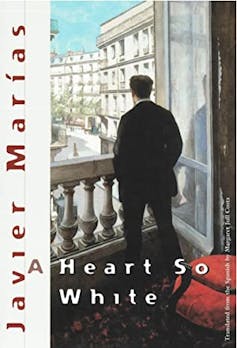the renowned Spanish writer who stretched time, and sentences
- Written by Stewart King, Senior Lecturer, School of Languages, Literatures, Cultures and Linguistics, Monash University

Javier Marías, Spain’s most internationally renowned contemporary writer, died on September 11, just shy of his 71st birthday.
Marías’s fame rests on his 14 novels, including A Heart So White, which won the IMPAC International Dublin Literary Award in 1997, Tomorrow in the Battle Think on Me[1], and the Your Face Tomorrow trilogy. His last novel, Tomas Nevinson[2], was published in March 2021. In Spain, he is also renowned for his translations of English and American literature and journalism.
In his novels and short stories he picks up and runs with Miguel de Cervantes[3]’ fascination with the line between reality and fiction, particularly in works dealing with secrecy and betrayal. Other prominent themes include the limits and marvels of translation and cross-cultural understanding, and the weight of the past on the present.

















